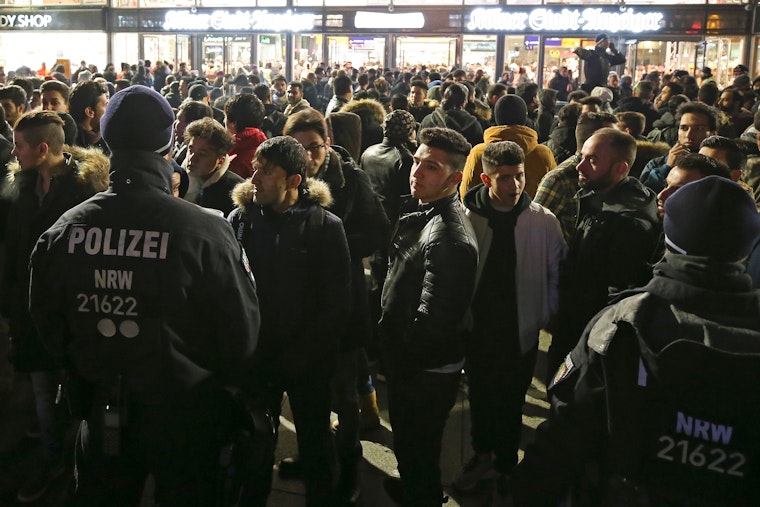Why Cologne’s Police Shouldn’t Brag About Racially Profiling 900 New Year’s Eve Revelers
By Nick Glynn

The scariest thing about the preemptive screening of hundreds of North African men on New Year’s Eve in Cologne, Germany, during the celebration known as silvesternacht is that the police announced it after the fact as if it were something to be proud of.
The announcement, which came on Twitter, also referred to the men as “Nafris,” a derogatory term for North Africans that the city’s chief of police has since apologized for. But the chief made no apologies for the massive racial profiling his officers undertook that night in checking the identities of approximately 900 people.
“We had a clear idea of who we should be checking,” Jürgen Mathies said in an interview. “It wasn’t gray-haired old men or blond young women.”
His statement was an incredible admission and all the more worrying because Mathies doesn’t seem to see that there’s anything wrong with what his officers did.
I dedicated much of my 31-year career in the UK police to preventing racial and ethnic profiling like the kind deployed in Cologne that night. For me, the cause was personal as well as professional. As a black man, I’ve been stopped by the police many times; last month, I was the only black person on a flight into a European airport, and the only passenger pulled aside for additional screening upon landing.
Singling out individuals or groups of people based on ethnic or national origin has a profoundly negative impact on the people being stopped. Beyond that, however, the practice is counterproductive and inefficient. Profiling misuses resources and alienates people who might be willing to help solve crimes if they weren’t constantly being treated as though they were committing them.
It’s a bit like a fisherman casting a huge net simply on the chance that there might be a fish he’d like to catch somewhere in the haul. Policing isn’t fishing. You can’t just cast a big net and hope to bring in a good haul. That’s what it appears the Cologne police did on New Year’s Eve.
The best way to find people who are doing bad things or who are going to do bad things is to have good intelligence, and the best way to have good intelligence is to have members of the public feel as though the police are there for them, that police departments are organizations they can trust.
In most cases, the first step towards effective policing is to determine whether the problem of racial profiling exists by collecting data on who is being stopped, why, and how often. In the UK, we know we have a problem. Now we are trying to figure out how to fix it.
In October, the College of Policing published national stop-and-search training standards and guidelines to help improve how such powers are used and to reduce bias. The recording of traffic stops is also now on the agenda.
Data does more than provide information; it can make police officers more responsible in their use of discretion. In Spain, during a six-month pilot project on data collection during police stops, the disproportionality of stops against minorities decreased by two-thirds, the number of stops in general fell by more than 50 percent, and the percentage of stops that resulted in actual arrests increased almost threefold, according to a 2009 report from the Open Society Justice Initiative.
The Open Society Foundations, which I joined in 2016 after leaving my position as a senior police officer and national lead on stop-and-search for the UK’s College of Policing, is hoping to put more of such pilot projects in place. Germany, like most of the rest of Continental Europe, does not keep track of its police stops.
But in the case of Cologne, we already have an admission of racial profiling. Now we just have to help the police department there understand why that’s a problem.
Nick Glynn is a senior program officer with the Open Society Europe and Eurasia Program.